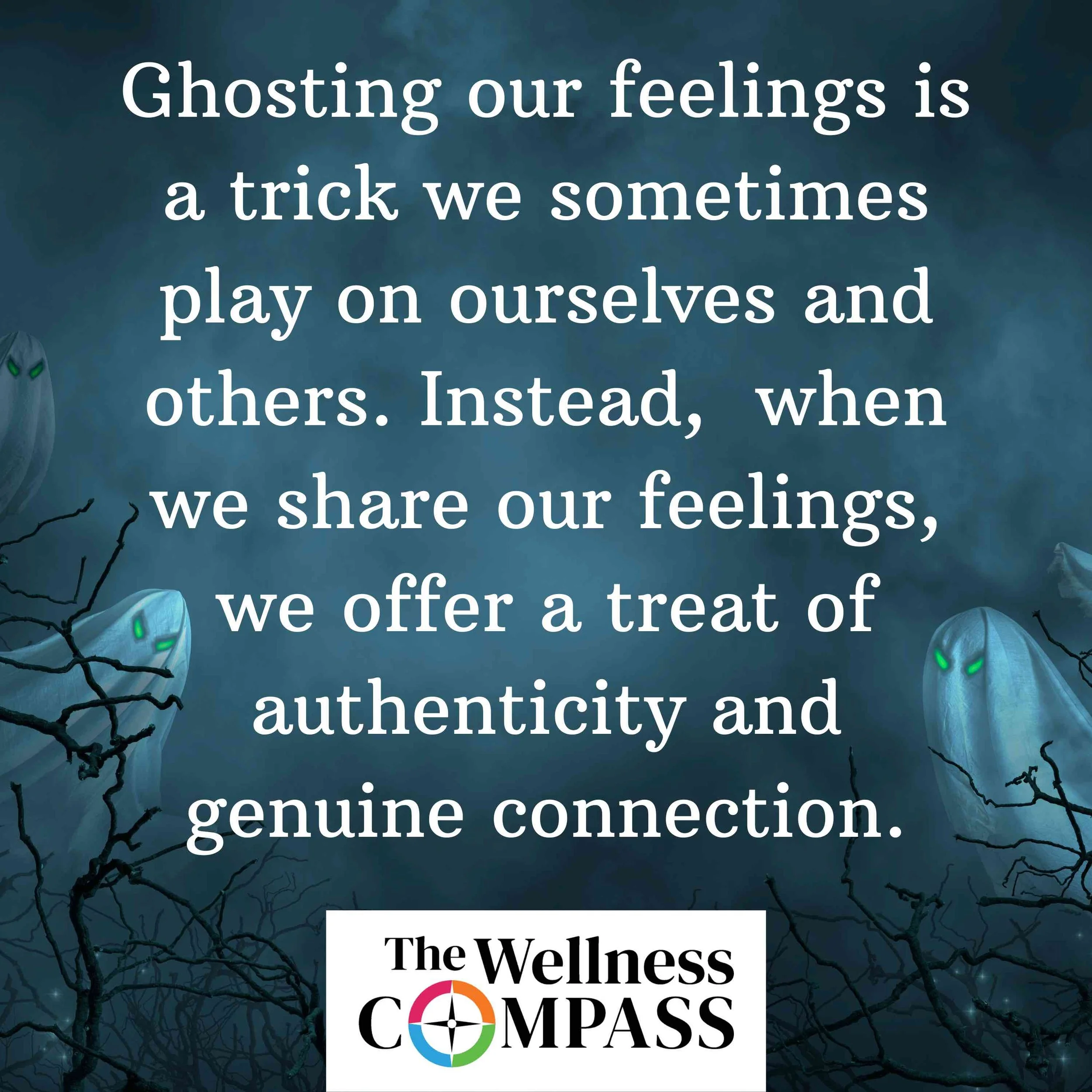Don’t Ghost Your Feelings
The Wellness Compass Initiative is our partner community wellness initative that serves schools, counseling centers, nonprofits, and other community wellness organizations. Each week Holly Hughes Stoner and Scott Stoner co- write a column for Wellness Compass and we are pleased to share it here on our Living Compass site. There is also a Wellness Compass podcast at www.wellnesscompass.org/podcast.
We met with a group of school counselors recently, and the words on the T-shirts caught our attention: “Don’t Ghost Your Feelings. Instead, Share Them with Others.” October is National Depression Awareness Month, and with Halloween taking place in October, they had found a fun way to communicate an important message to their students.
The word “ghosting” became popular a decade ago and even entered the Webster dictionary in 2017. It originated as a term in the online dating world to describe a person who suddenly ends all communication with someone with whom they had been talking. They no longer respond to texts, emails, or calls, having given no explanation for their becoming like “ghosts” and completely disappearing. People willing to talk about why they ghosted someone have usually stated that they were too uncomfortable communicating openly and honestly with others, so they found it easier to ignore the topic or the person completely.
The term ghosting has been expanded to include completely ignoring or avoiding an uncomfortable topic. So, for example, we sometimes hear comments like, “Whenever I say I want to talk about our finances, you ghost me.” This means the person who doesn’t want to talk about finances isn’t being argumentative —they are just disappearing, pretending like they didn’t even hear the other person.
Returning to the school counselors’ T-shirts, ghosting one’s feelings means acting like they don’t exist. Instead of ghosting, the school counselors regularly teach how to become comfortable with the full range of emotions so that students can become more skilled at both feeling and expressing what they are feeling. They are encouraging them to do so even when doing so makes them feel quite vulnerable.
The wise wisdom offered by the school counselors is good advice for all of us. Halloween may be over, but the wisdom of not ghosting our feelings remains relevant all year.
Trick or treat? Ghosting our emotions can be a trick we play on ourselves and others. Becoming more comfortable expressing our feelings, on the other hand, is a treat we can give ourselves and our relationships.
As always, we love to hear from you. You can email us at
connect@wellnesscompass.org, or through our Wellness Compass Facebook page.
If you want to hear more about our thoughts on this topic, listen to this week’s 10-minute episode of the Wellness Compass Podcast, which you can find by clicking on “Podcast” at the top of this page.
Speaking of podcasts, Scott has his own podcast, which is just him speaking about a topic that he is passionate about: the integration of spirituality and wellness. The Living Compass Podcast can be found HERE or in your favorite podcast app.
Subscribe Now to Weekly Words of Wellness:
Click the button below to signup for the e-mail version of Weekly Words of Wellness. This weekly article can be shared with your community electronically and/or used for group discussion.
You can unsubscribe at any time.

